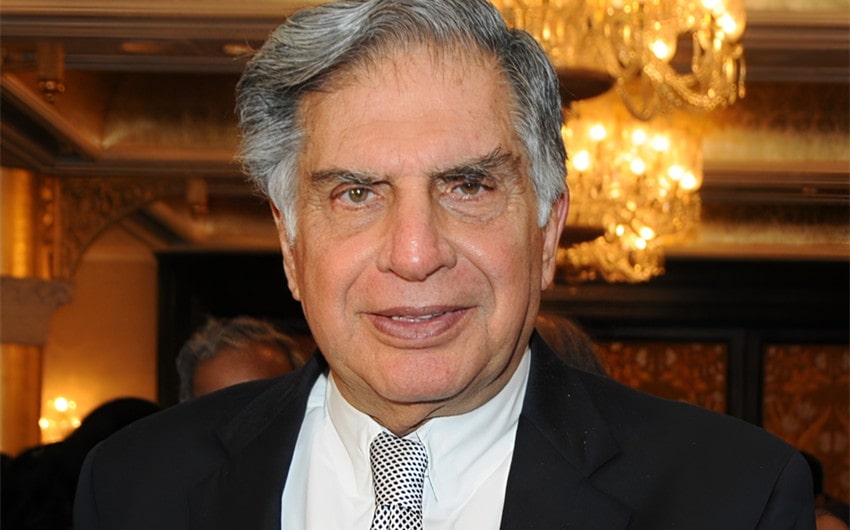Ratan Tata’s Net Worth: Business Empire, Philanthropy, and Global Influence
Ratan Tata’s net worth is a subject of fascination for many, given his towering reputation in the business world and his role in transforming the Tata Group into one of the most respected and diverse conglomerates on the planet. While many assume that his personal fortune must rival the richest billionaires in the world, the reality is far more nuanced. Ratan Tata’s wealth is closely tied to the unique ownership structure of the Tata Group, where the majority of profits are directed toward philanthropic causes rather than personal enrichment. This makes his story one of extraordinary leadership, humility, and dedication to social good.
Early Life and Education
Ratan Naval Tata was born on December 28, 1937, in Bombay (now Mumbai), India, into the influential Tata family. He is the son of Naval Tata, who was adopted into the Tata family, and Sooni Tata. Although born into privilege, Ratan Tata’s upbringing was shaped by discipline, values, and a sense of responsibility instilled by his family’s long tradition of business ethics and philanthropy.
After his parents separated when he was young, Ratan Tata was raised by his grandmother, Lady Navajbai Tata. His early education took place at the prestigious Campion School and Cathedral and John Connon School in Mumbai. He later attended Bishop Cotton School in Shimla before graduating from the Riverdale Country School in New York City.
Ratan Tata went on to earn a degree in architecture from Cornell University in 1962. Afterward, he completed the Advanced Management Program at Harvard Business School in 1975, equipping him with a global perspective on business leadership that would shape his career.
Rise in the Tata Group
Ratan Tata began his professional journey within the Tata Group in 1961, working on the shop floor of Tata Steel, where he shoveled limestone and handled machinery alongside regular workers. This hands-on experience gave him a deep understanding of the company’s operations from the ground up.
Over the years, he took on increasingly important roles in various Tata companies, proving his strategic thinking and commitment to innovation. In 1991, he succeeded J.R.D. Tata as chairman of Tata Sons, the holding company of the Tata Group. His appointment came at a time when India was undergoing economic liberalization, opening up vast opportunities for growth and competition.
Transforming the Business Empire
Ratan Tata’s leadership marked a period of bold expansion and globalization for the Tata Group. Under his stewardship, the company went from being a largely India-centric conglomerate to an international powerhouse.
Some of his most significant moves included the acquisition of Tetley Tea in 2000, which marked the group’s entry into the global beverage market, and the purchase of Corus Group in 2007, a major step into the steel industry. Perhaps the most high-profile deal was the acquisition of Jaguar Land Rover from Ford in 2008, a move that initially drew skepticism but later turned into one of the company’s most profitable ventures.
During his tenure, Tata Group’s revenues grew more than 40 times, and profits surged by over 50 times. The conglomerate expanded into over 100 countries and established a presence across industries including steel, automobiles, information technology, telecommunications, hospitality, and consumer goods.
Sources of Wealth
Understanding Ratan Tata’s net worth requires examining the structure of the Tata Group. Tata Sons, the principal holding company, controls the majority of shares in the various Tata companies. However, around 66% of Tata Sons is owned by charitable trusts, including the Sir Dorabji Tata Trust and the Sir Ratan Tata Trust. This means that the bulk of the profits from the conglomerate are channeled into philanthropic initiatives rather than going to individual shareholders.
Ratan Tata himself owns only a small personal stake in Tata Sons, which explains why his personal net worth is relatively modest compared to the scale of the group’s assets. His wealth comes from this stake, accumulated dividends, and other personal investments. Unlike many business tycoons, he has never used his position to amass vast personal holdings, instead prioritizing the mission and legacy of the Tata Trusts.
Philanthropy and Social Impact
Ratan Tata is widely regarded as one of the most philanthropic business leaders in the world. The Tata Trusts, which he has guided for decades, fund a wide range of initiatives in healthcare, education, rural development, water conservation, and scientific research.
Under his influence, the trusts have made significant contributions to medical research, including a $50 million donation to Harvard University for creating a Tata Hall for executive education and substantial funding for the Indian Institute of Technology (IIT) campuses. They have also supported global initiatives, such as collaborations with Cornell University and the Massachusetts Institute of Technology (MIT).
Ratan Tata’s approach to philanthropy is strategic, aiming for sustainable impact rather than short-term charity. His belief that wealth should serve society has set him apart from many of his contemporaries in the business world.
Estimated Net Worth in 2025
As of 2025, Ratan Tata’s net worth is estimated to be around $1 billion. This figure may seem modest compared to global billionaires, but it reflects his personal shareholding and assets rather than the full economic value of the Tata Group, which is worth hundreds of billions of dollars.
The Tata Group includes some of India’s most valuable companies, such as Tata Consultancy Services (TCS), Tata Motors, Tata Steel, Tata Consumer Products, and Indian Hotels Company. If Ratan Tata directly owned the group’s assets, his net worth would place him among the richest individuals in the world. However, due to the trust-based structure, the wealth benefits millions of people through charitable programs rather than being concentrated in his personal fortune.
Lifestyle and Public Perception
Despite his immense influence and resources, Ratan Tata is known for his modest lifestyle. He avoids ostentatious displays of wealth, preferring to live simply and focus on meaningful work. He is often seen driving himself in his cars, interacting warmly with employees, and maintaining a down-to-earth demeanor.
In India and abroad, he is respected not only for his business acumen but also for his integrity, humility, and empathy. Social media users often highlight his acts of kindness, such as personally visiting employees in need or supporting individuals quietly without seeking publicity.
Legacy and Future Outlook
Ratan Tata officially retired as chairman of Tata Sons in 2012, but he remains active as Chairman Emeritus and continues to be a guiding force for the group. His legacy is defined not only by the expansion and globalization of the Tata Group but also by the way he has redefined corporate responsibility.
His influence will likely endure for decades, as the Tata Group continues to grow and adapt to changing markets. The philanthropic infrastructure he has strengthened ensures that his impact will be felt far beyond the business world, touching lives across India and globally.







